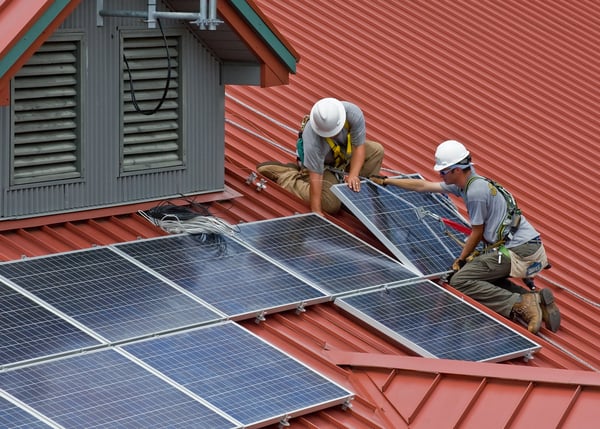The Full Guide to Solar Energy Installment: Conserve Cash and Go Eco-friendly
Discovering the subtleties of solar energy installation exposes a multifaceted approach to both price financial savings and environmental obligation. Property owners are progressively thinking about solar power not only as a practical option yet as a strategic financial investment that can yield significant lasting advantages. Nonetheless, the process includes careful factor to consider of various variables, consisting of system choice and installment treatments. Understanding these elements is vital for making best use of effectiveness and savings. What particular actions should one require to ensure an effective transition to solar energy, and exactly how can monetary rewards further boost this venture?
Benefits of Solar Power
The expanding fostering of solar energy mirrors a significant change toward sustainability and environmental duty. One of the primary benefits of solar energy is its ability to reduce reliance on fossil fuels, resulting in reduced greenhouse gas emissions. By harnessing the sun's power, people and businesses can add to a cleaner atmosphere and minimize the unfavorable impacts of environment modification.
Moreover, solar energy can bring about considerable economic cost savings. Once set up, photovoltaic panels significantly lower electrical energy costs, as they produce energy from a renewable source. Several governments likewise offer incentives, discounts, and tax obligation credits to encourage solar adoption, further enhancing economic stability.
Another notable benefit is power self-reliance. Solar power systems enable home owners and organizations to generate their very own electrical energy, minimizing vulnerability to changing power costs and supply disturbances. Furthermore, solar power systems need very little upkeep, converting to lower lasting functional expenses.
Picking the Right Planetary System

Next, review your budget. best solar energy company in fort lauderdale. Planetary system differ substantially in cost depending on their type, dimension, and performance. Consider prospective funding alternatives such as financings, leases, or power acquisition agreements (PPAs) that might ease upfront expenses. Additionally, research study readily available rewards, discounts, or tax credits that can further decrease expenses.
Readily available room is another important factor. Evaluate your roof covering's orientation, angle, and shading, as these aspects can impact photovoltaic panel effectiveness. If roofing space is restricted or inappropriate, ground-mounted systems may be a feasible alternative.
It's important to carry out detailed research to understand the specific incentives offered in your location, as they can differ widely. Consulting with a solar installation professional can assist you browse these choices effectively, ensuring you maximize your savings while adding to a more lasting energy future.
Maintaining Your Solar System
Effective maintenance is essential for guaranteeing the long life and ideal efficiency of your solar energy system. Routine upkeep can help avoid small problems from rising into costly repair services and make sure optimal power efficiency.
Start with regular inspections of your solar panels, ideally every 6 months. Cleansing the panels, specifically in areas susceptible to dirt or bird droppings, can substantially improve power production.
Following, monitor the inverter. This component converts solar power right into functional electrical energy and ought to be checked monthly. Many modern-day inverters have keeping an eye on systems that alert you to performance problems, enabling timely intervention.
Furthermore, evaluate the circuitry and connections for any kind of signs of rust or damages, as these can bring about decreased effectiveness or system failure. Finally, consider professional upkeep services every year for an extensive examination.
Conclusion
Financial rewards and routine upkeep further contribute to the long-term benefits of pop over to these guys solar power. Ultimately, welcoming solar technology represents a crucial step towards sustainability and power self-reliance, promoting a greener future for all.